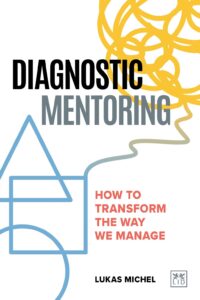|
How to develop your leadership skills and achieve your aspirations
By Guest Contributor Pamela Odukoya, Member of Toastmasters International
At the start of my career, I experienced working with leaders who were tasked focused, took decisions without much consultation, and had little empathy for the people in their teams. When I had good ideas, I held back. I felt too scared to contribute. I noticed that other team members were nervous about asking for help when they did not understand a task.
In essence, the leaders created an atmosphere of distrust and it made me anxious and demotivated. This experience delayed my first step into leadership because I did not appreciate this autocratic style.
Even though I was not exposed to other leadership styles in the early stages of my working life, I came to realise that leadership styles can vary significantly and that a leader could demonstrate different styles depending on the situation in which they are leading. It is often argued that good leaders adapt their style depending on context.
Through a period of reflection, research and self-analysis, I gained a greater appreciation of my own diverse skills, experience and values. More importantly, I gained a new understanding of the different leadership styles and self-analysis helped me to discover my preferences.
My leadership career now spans seventeen years. This includes leading a team of career advisers in both private and public sectors and leading a team of volunteers in a public speaking organisation. I view leadership as an opportunity to collaborate with a group of people and motivate them to achieve a common goal. It is not about a position, rank or title. I adopt the transformational leadership style as my dominant leadership style because it gives me the opportunity to inspire and develop others whilst building productive relationships and using a great deal of creativity.
Regardless of a leader’s style, every leader should be able to set goals, use resources efficiently and effectively, motivate the team to achieve the shared vision and be innovative. I consider Integrity to be a key hallmark of a leader, and this involves owning your mistakes, being transparent, fair and consistent
If you are an aspiring leader, then here are a few tips to help you to move ahead. They certainly helped me, and I hope they will be useful to you too:
Make the most of Continuous Professional Development
Continuous professional development is one of the things I enjoy most about leadership as it gives me the opportunity to enhance my knowledge and sharpen my skills. I then draw upon these competencies to motivate my team, review policy and processes and bring about innovation. It is also an activity that helped me become a leader.
Learn it
Both formal and informal learning can help an aspiring leader to develop. I would recommend these online resources as starting points.
Try it
To get some experience of leadership at senior level, I would suggest you consider applying for a trustee role in a charitable organisation. As a trustee, you will be part of a board and you will have legal responsibility for the management and administration of the charitable organisation. Some resources to help you explore the role of a trustee are:
Or you can try to take on a leadership role in a volunteering organisation or professional association.
The skills you have gained in your personal and professional life can add value to a charitable or volunteering organisation and this can contribute towards your growth and development in leadership. I have had two trustee positions as well as led a team of volunteers, and both helped me to learn new skills including strategic management and budgeting.
Get to know and understand your team
Leaders inspire people to work towards and achieve goals. Developing productive working relations is an absolute must for leaders. Time invested in understanding the personalities, values and aspirations of team members by listening and engaging with them is well spent.
I recognise that my team members have their unique beliefs, values and aspirations. Therefore, I seek to gain an understanding of these aspects through formal and informal meetings and listen actively to their story. Though this process can be time-consuming, the benefits are immense. It helps me to gain my teams’ trust and create a safe working environment which can subsequently impact their performance and productivity. In addition, it also helps me to be alert to their situation and identify signs of demotivation early.
I still remember the light bulb moment I had when I invested time to understand a team member who was underperforming. Through a series of informal meetings, I learnt about the team member’s personal barriers. As a result, I worked with them to identify support needs and made the necessary workload adjustments. These adjustments helped the team member to reengage with work and optimise performance. Consequently, they gained the confidence to study for further qualifications and successfully apply for a leadership position. Without this time investment, this person might not have been able to reach their full potential.
Empowering others
My passion for personal growth and development gives me the drive to empower others and support them to realise their full potential. Apart from regularly assessing my team’s training needs, it’s important to find creative ways to motivate and stretch my team. In one of my leadership roles, I created mini projects for team members which gave them the opportunity to work at a different level and influence change. As a result, they developed new capabilities and greater confidence to engage with a wider group of stakeholders.
Recognition and appreciation
Many leadership writers agree on the benefits of showing appreciation, as it has a positive impact on individual and team performance and wellbeing. This is echoed by many theorists such as Frederick Herzberg in his ‘Theory of Motivation’ and Abraham Maslow’s ‘Hierarchy of Needs’.
Some of the ways I have shown recognition to my team include simply saying “Thank You”, announcements at team meetings, communicating via team correspondence and of course the power of a chocolate cake on a Friday afternoon. You can also consider tangible forms of recognition such as certificates or awards, as well as monetary gifts.
I have learnt that some team members prefer private recognition rather than public recognition. Therefore, I apply the Platinum Rule, which basically says, “Do unto others as they would want to be done to them.” I follow this rule by tailoring how I treat people to respect their preferences.
When showing recognition, it is important that you are fair and consistent otherwise it can be deemed as a form of discrimination, and this can affect the team’s morale.
Another aspect to be mindful of relates to how you recognise your team at external meetings. Do you focus only on the metrics? Do you single out only the top performers? How about that team member who never gets a mention despite working so hard to support the team? Have you spelt everyone’s name correctly? These behaviours can be harmful because they impact the team member’s status within the team. Always aim to build an atmosphere of inclusion and belonging.
Decide on your next step
1. Start with a reflection of your current skills and attributes. Some of them might be linked to the leadership competencies. For instance, if you enjoy organizing events for your friends and family, think about how you can take your organizational skills to the next level. Sound organizational skills can be linked to leadership competencies such as collaboration and team work.
2. Reflect on all the poor leadership styles you have experienced. What could these leaders have done differently?
3. Apply for a leadership role in a volunteering organisation. This is a safe way to explore all aspects of leadership such as planning, influencing and motivating others. Importantly, you will receive feedback which will be invaluable as you develop your own leadership style. As a volunteer, your mistakes are viewed as learning experiences. This is different to a work environment where mistakes can cost you your job or a promotion.
4. Read autobiographies of influential leaders e.g., Nelson Mandela and Brian Tracy. This can help identify great leadership behaviours which you could model.
ABOUT THE AUTHOR

Pamela Odukoya is a member of Toastmasters International, a not-for-profit organisation that has provided communication and leadership skills since 1924 through a worldwide network of clubs. There are more than 400 clubs and 10,000 members in the UK and Ireland. Members follow a structured educational programme to gain skills and confidence in public and impromptu speaking, chairing meetings and time management. To find your nearest club, visit www.toastmasters.org
Suggested Reading
 Leader As Healer outlines both a theoretical and practical map towards a new form of leadership, one that embodies the ‘skill, heart, and wisdom’ that the current moment demands. The pathway Janni describes is one of integration and restoration, which is designed to reawaken the innate human capacities – physical and emotional, individual and transpersonal – that were previously discarded and forgotten during our perilous journey towards profit-maximization and “infinite” economic growth. It offers a way to grow ourselves as leaders and to heal our organizations.
Leader As Healer outlines both a theoretical and practical map towards a new form of leadership, one that embodies the ‘skill, heart, and wisdom’ that the current moment demands. The pathway Janni describes is one of integration and restoration, which is designed to reawaken the innate human capacities – physical and emotional, individual and transpersonal – that were previously discarded and forgotten during our perilous journey towards profit-maximization and “infinite” economic growth. It offers a way to grow ourselves as leaders and to heal our organizations.
 In Mastering Decline, a former management consultant and current CEO of a company that survived decline in its market provides practical and hard-won advice for managers and owners of any company in a declining market or situation. In doing so, the author highlights key activities that companies in declining markets should focus on in order to secure their future and remain profitable.
In Mastering Decline, a former management consultant and current CEO of a company that survived decline in its market provides practical and hard-won advice for managers and owners of any company in a declining market or situation. In doing so, the author highlights key activities that companies in declining markets should focus on in order to secure their future and remain profitable.

It’s every manager’s prime job to manage better: to change the way they lead people and how they organise work in the new (post-pandemic) business context. Diagnostic Mentoring discusses the role of the operating system to do that and clarifies managerial priorities and goals. This then sets the stage for Diagnostic Mentoring – the methodology that enables the transformation of the way we manage.
